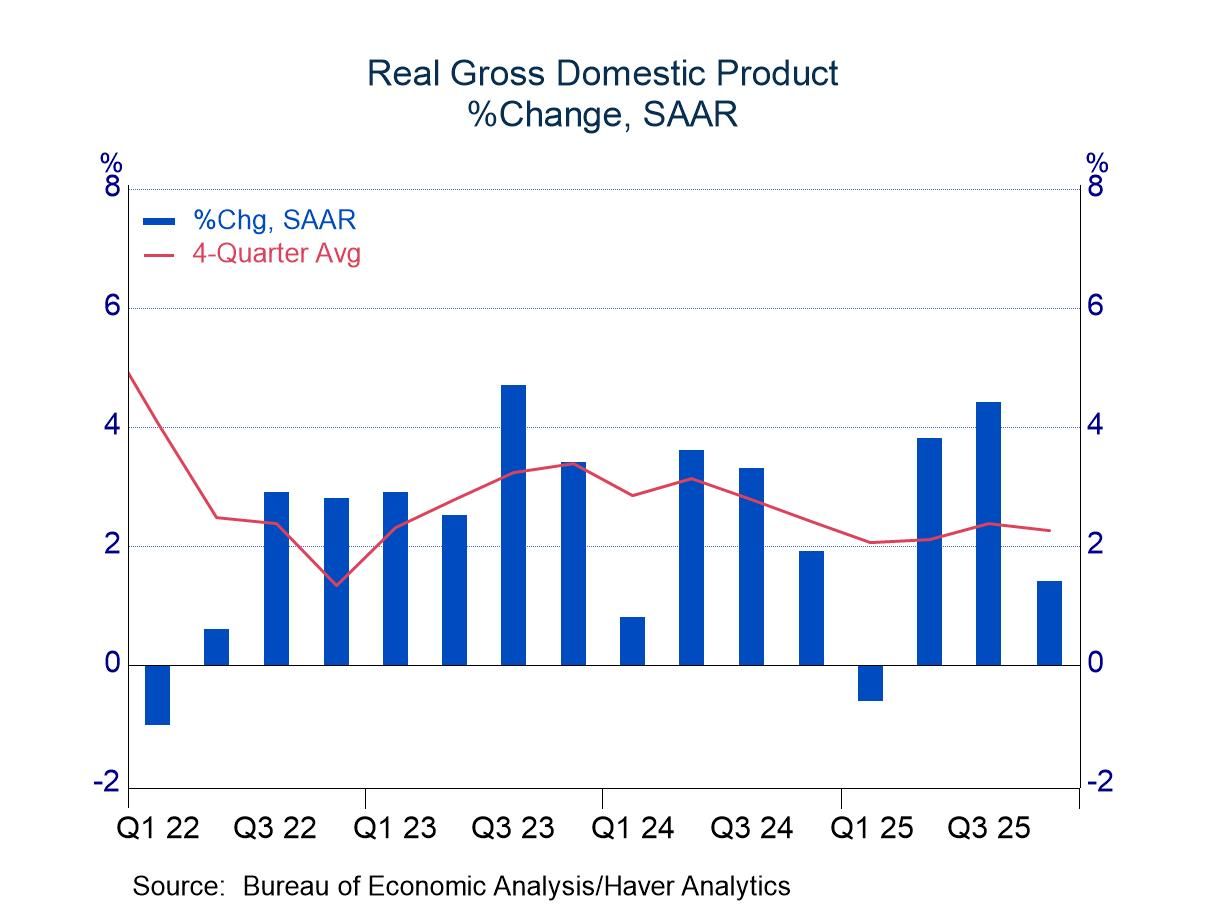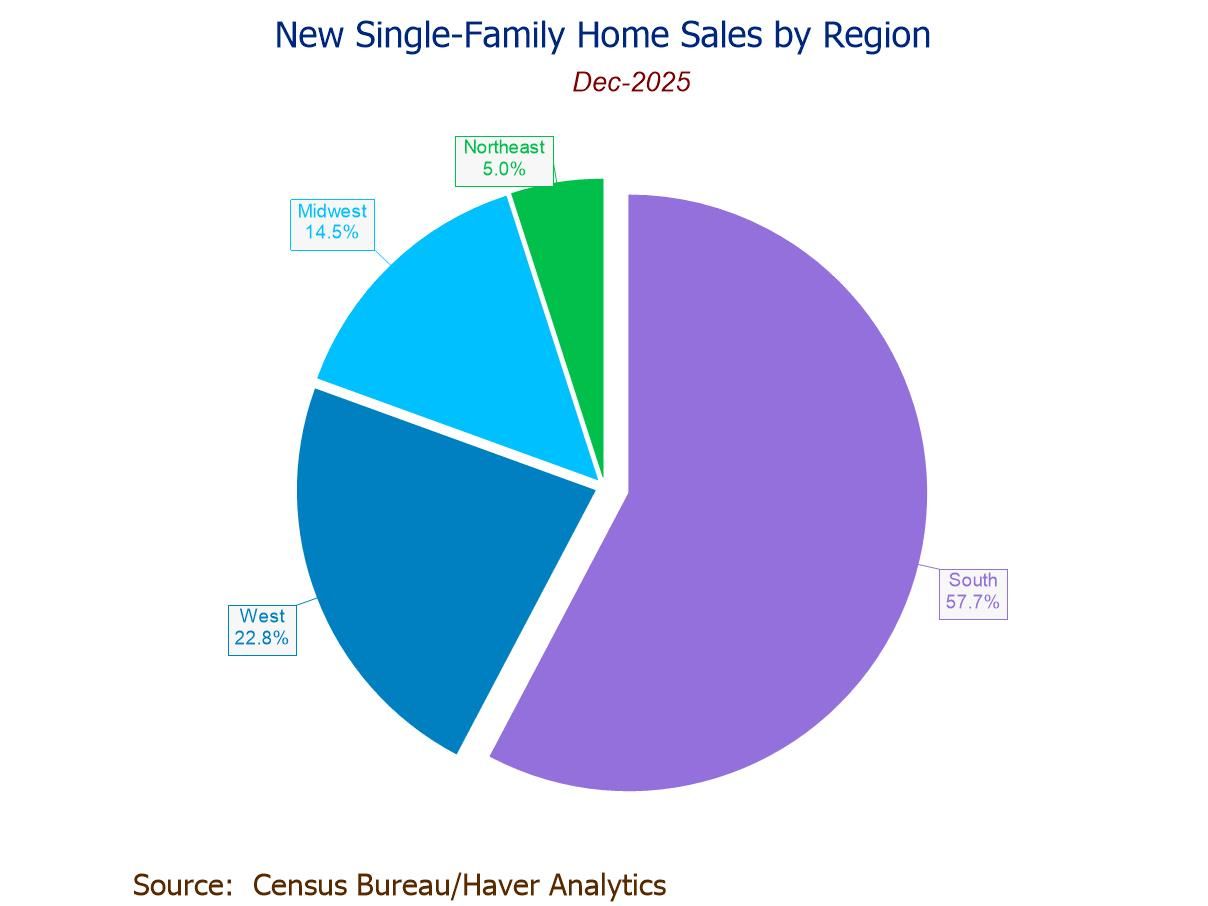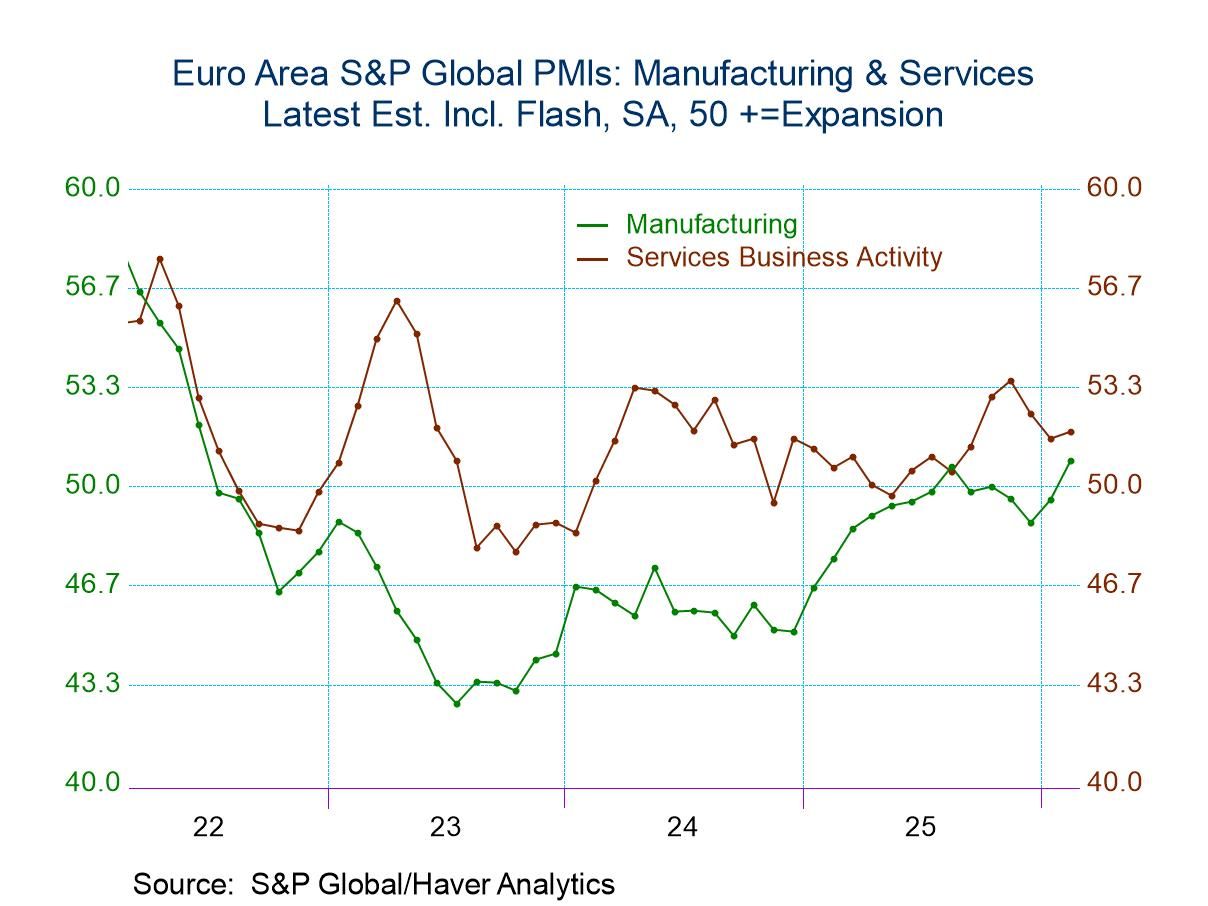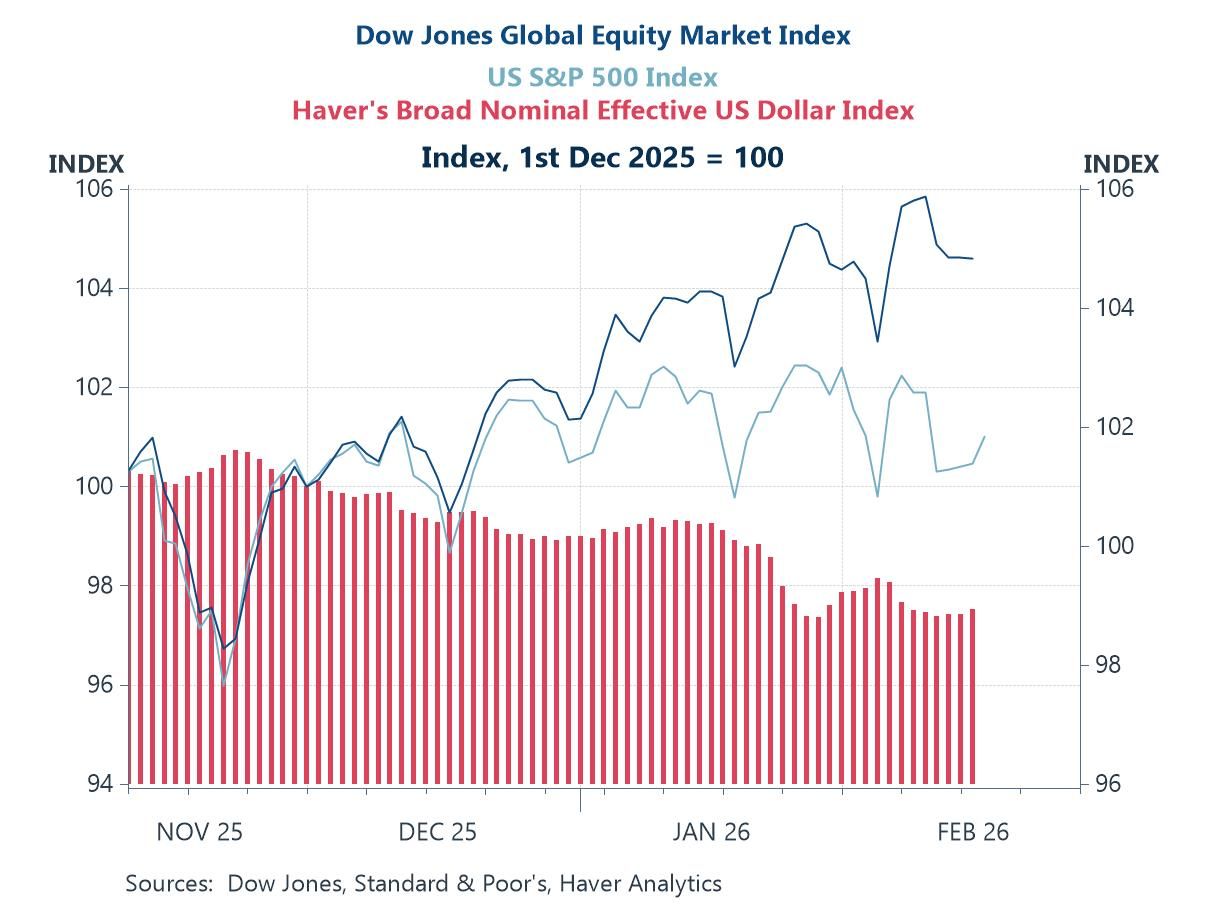 Global| May 30 2003
Global| May 30 2003Personal Income Unchanged, Spending Down
by:Tom Moeller
|in:Economy in Brief
Summary
Personal income was unchanged last month versus the Consensus expectation for a 0.2% gain. Weakness in income was primarily due to a 0.2% decline in wages and salaries that followed a 0.5% spurt in March. A 0.4% (2.5% y/y) decline in [...]

Personal income was unchanged last month versus the Consensus expectation for a 0.2% gain.
Weakness in income was primarily due to a 0.2% decline in wages and salaries that followed a 0.5% spurt in March. A 0.4% (2.5% y/y) decline in private industry wages was partially offset by a 0.5% (5.1% y/y) gain in government sector wages.
Disposable personal income rose 0.1% (4.2% y/y) following a 0.4% March gain.
Personal consumption expenditures declined by 0.1% versus expectations for a 0.1% gain. The decline reflected a 1.4% drop in spending on nondurable goods which was pulled lower by the sharp decline in gasoline prices last month. Spending on durable goods rose 1.2% (1.6% y/y) lifted by a 1.8% rise in light vehicle sales. Spending on services rose a moderate 0.3% 94.9% y/y) for the second month.
The PCE price deflator fell 0.2% in April. Less food and energy the price deflator rose 0.1% (1.3% y/y) for the third consecutive month.
| Disposition of Personal Income | April | Mar | Y/Y | 2002 | 2001 | 2000 |
|---|---|---|---|---|---|---|
| Personal Income | 0.0% | 0.4% | 3.4% | 2.8% | 3.3% | 8.0% |
| Personal Consumption | -0.1% | 0.8% | 4.2% | 4.5% | 4.5% | 7.0% |
| Savings Rate | 3.7% | 3.5% | 3.6% | 3.7% | 2.3% | 2.8% |
| PCE Price Deflator | -0.2% | 0.4% | 1.8% | 1.4% | 2.0% | 2.5% |
by Tom Moeller May 30, 2003
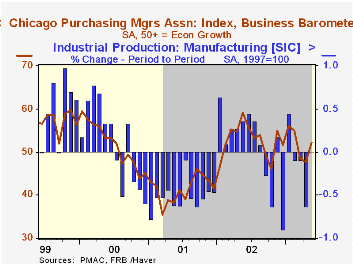
The Chicago Purchasing Manager’s Business Barometer Index improved more than expected to 52.2 in May. The reading followed two months below 50. Consensus estimates were for a reading of 48.0.
The improvement was greater then the Philadelphia Fed survey, reported earlier this month, which showed slightly less improvement in general activity versus April. Conversely, the Empire State Manufacturing survey indicated a greater degree of improvement in May.
Over the last five years there has been a 62% correlation between the Chicago PMI and the month to month change in factory sector industrial production.
Improvement in the business barometer mostly reflected a higher new orders index which rose 10 points to 54.6. Production rose 9.5 points to 60.5. Employment was about unchanged at 43.6.
The prices paid index fell to the lowest level since April of last year.
Visit the Chicago Purchasing Managers website at www.napm-chicago.org.
| Chicago Purchasing Managers Index, SA | May | April | Y/Y | 2002 | 2001 | 2000 |
|---|---|---|---|---|---|---|
| Business Barometer | 52.2 | 47.6 | 59.2 | 52.7 | 41.4 | 51.8 |
| Prices Paid | 53.7 | 55.9 | 57.2 | 56.9 | 50.4 | 65.6 |
by Tom Moeller May 30, 2003
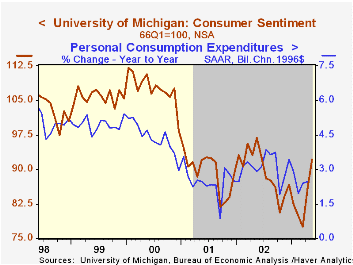
The May reading of Consumer Sentiment from the University of Michigan rose 7.1% versus April which rose 10.8% from March. The May level of 92.1 was slightly below Consensus expectations for 92.5 and was below the mid-month reading of 93.2.
The index of current conditions fell 3.3% m/m versus a 2.4% decline reported mid-month. The index of expectations jumped 15.3% versus a mid-month report of a 16.9% jump.
Over the last ten years there has been a 64% correlation between the level of consumer sentiment and the y/y change in real PCE. The correlation over the last five years has been 82%.
The University of Michigan survey is not seasonally adjusted.It is based on telephone interviews with 250 households nationwide on personal finances and business and buying conditions. The survey is expanded to a total of 500 interviews at month end.
| University of Michigan | May | April | Y/Y | 2002 | 2001 | 2000 |
|---|---|---|---|---|---|---|
| Consumer Sentiment | 93.2 | 86.0 | -3.8% | 89.6 | 89.2 | 107.6 |
Tom Moeller
AuthorMore in Author Profile »Prior to joining Haver Analytics in 2000, Mr. Moeller worked as the Economist at Chancellor Capital Management from 1985 to 1999. There, he developed comprehensive economic forecasts and interpreted economic data for equity and fixed income portfolio managers. Also at Chancellor, Mr. Moeller worked as an equity analyst and was responsible for researching and rating companies in the economically sensitive automobile and housing industries for investment in Chancellor’s equity portfolio. Prior to joining Chancellor, Mr. Moeller was an Economist at Citibank from 1979 to 1984. He also analyzed pricing behavior in the metals industry for the Council on Wage and Price Stability in Washington, D.C. In 1999, Mr. Moeller received the award for most accurate forecast from the Forecasters' Club of New York. From 1990 to 1992 he was President of the New York Association for Business Economists. Mr. Moeller earned an M.B.A. in Finance from Fordham University, where he graduated in 1987. He holds a Bachelor of Arts in Economics from George Washington University.



